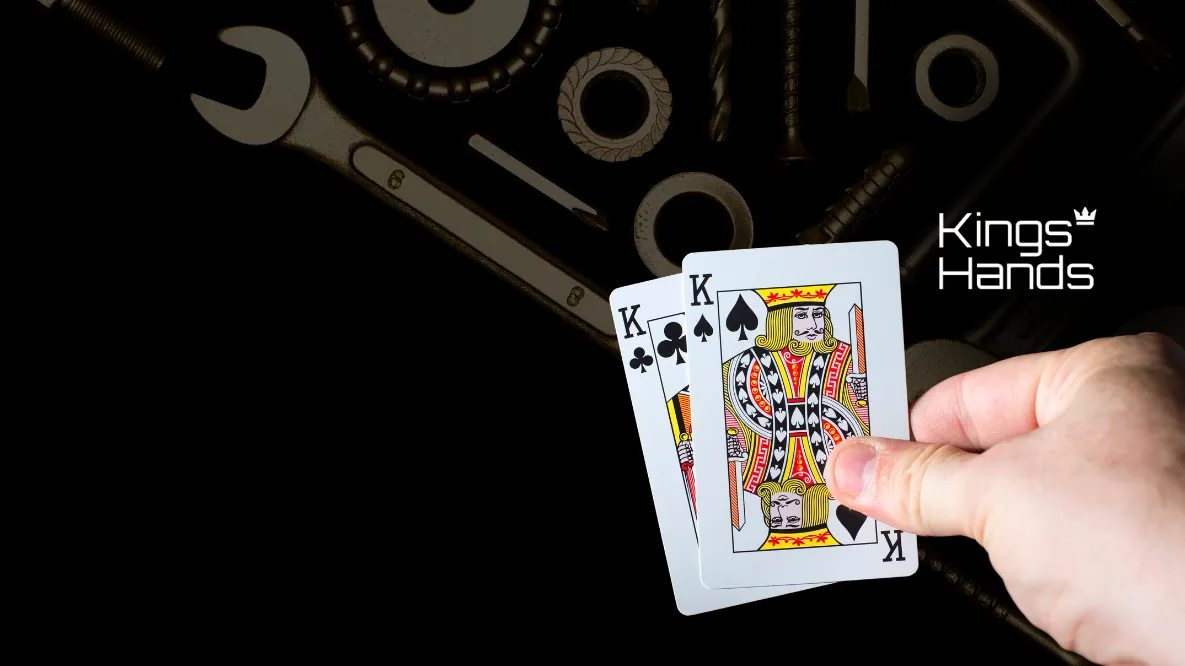Tilt is something that all poker players have to deal with. Humans are naturally emotional; we always want to win, and when money’s on the line, you can imagine how upset people get when they lose. Tilting is an unavoidable part of the game, but if you can manage it better than your opponents, you’ll find yourself winning much more often.
What Is Tilt?
For the uninitiated, tilt is another word for an emotional state that leads to poor performance at the poker table. Many people associate tilt with negative emotions, such as anger, frustration, or sadness; usually occurring after a bad beat or losing a big hand.
However, tilting isn’t just for the losing players; winning players can become over-confident, thinking that they’re going to win every hand they play. Alternatively, winners can become scared money, who make conservative decisions to try and lock up their win.
Why Is Tilt A Bad Thing?
Tilting is considered negative as it usually leads to poor performance, resulting in a loss of win rate. When you’re thinking emotionally due to stress or anger, you’re no longer thinking about what the most profitable action is, you’re being driven by your emotional state.
For example, a good player who is dealt 42s UTG will always fold their hand, as they know that it’s a hand that’s too weak to play from that position. However, how does the situation change if that player just had their aces cracked in a 400bb pot? Now, that good player is tilting, and suddenly that 42s looks like a good way to win their money back by cracking one of their opponent’s hands.
During the course of our poker career, we’ve all fallen into the same mindset. We’ve been on the receiving end of a run of bad luck, and we started taking matters into our own hands to try and remedy the situation. However, this will always do more harm than good in the long run.
Instead, we must try and regulate our emotions, and prevent tilt from having an impact on the way we play the game.
Top 5 Tips For Managing Your Tilt
Luckily, there are ways to manage tilt at the table and prevent it from affecting your game. Check out our top 5 tips for managing tilt:
1. Regulate Your Breathing
One of the best ways to calm yourself at the table is to regulate your breathing. Taking multiple deep breaths in a row will lower your heart rate and help you to stay calm. By taking 30 seconds to concentrate solely on your breathing, you simultaneously take your mind away from poker and reduce your overall stress levels.
If you feel yourself becoming tilted at the table, take the time in between hands to focus on your breathing and nothing else. You’ll be amazed how level-headed you feel after you’re done.
2. Repeat Self-Affirmations
Poker is a mental game, and your brain is the muscle that needs the most looking after when you play. As humans, we’re trained to see patterns; so when we make several decisions that lead to us losing, it’s only natural that we start to question whether we’re doing the right things.
Now, being self-critical is an important skill to have in poker, but when you start questioning yourself over simple decisions, it crosses the line from being a positive to a negative. In these situations, repeating positive affirmations can hack your brain into a positive outlook, and away from the negative spiral.
It may seem silly, but telling yourself that “you’re a good player” or “you’re a winning player” will help you believe it in times of self-doubt. You can even tailor your affirmations to address specific insecurities that you have about yourself, making them more effective. However, if you’re playing live poker, it’s probably best to do this in your head!
3. Remind Yourself Of The Long Run
Poker is all about the long term, but it can be easy to let short-term variance affect the way you think. It’s hard not to get exasperated after missing the flop for the 5th time in a row or having your 3rd big pair of the night cracked by some random hand.
However, reminding yourself of the “long run” can be a good way to manage your feelings of tilt. Over the course of tens of thousands of hands, you’ll likely face dozens, if not hundreds of bad beats, and you’ll dish them out to your opponents in equal measure. By looking at your bad luck as a small part of your whole poker career, it becomes much easier to brush off, allowing you to play your game without impediment.
4. Be Kind To Yourself
Let’s face it, poker is a tough game, and sometimes you’re going to make mistakes that lead to you losing a huge pot. For a number of players, making a mistake is one of the biggest tilt-triggers, as it’s something they can directly control, but still get wrong.
However, beating yourself up over a mistake isn’t going to change things – you aren’t going to be awarded the pot just because you got angry about playing a hand badly. If anything, it’s just going to increase the likelihood that you make a mistake in a future pot. When you’re angry, it’s hard to think clearly, which is the perfect recipe for making another mistake.
Rather than getting down after making a mistake, use the opportunity to learn. What should you have done in that situation, and what should you do next time to make sure it doesn’t happen again? Remember, a mistake is only truly a mistake if you don’t learn from it!

5. Take A Break
If you can feel your tilt taking over and things are getting a little too much, the best thing to do is to remove yourself from the game and take a break. There will always be a game to come back to, so don’t force yourself to sit there and play when you’re tilting hard. Trying to “play through” your tilt will only make things worse and could lead to a serious blowup – many a good player has punted off their stack while tilting, so don’t think it won’t happen to you.
It takes a lot of emotional maturity to remove yourself from the situation when you’re feeling tilted, and many players struggle to do so. However, when you take a break from the game, you give yourself a chance to fully de-tilt, reset, and come back to the table ready to play your A-game.
If you feel like you aren’t seeing any improvement in your temperament, the best thing to do is end the session altogether. There’s always another game, and a stack saved is a stack earned – especially when you’re tilting!
Summary
Humans are naturally competitive, so it’s perfectly reasonable to become emotional when playing games, especially when money is involved. However, by recognising when you’re starting to tilt and taking the steps to manage it, you’ll limit the impact these emotions have on your gameplay, giving yourself an edge over your opponents.





















